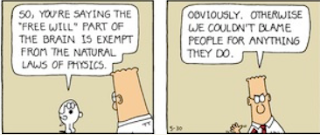Science isn’t self-correcting, it’s self-destructing. To save the enterprise, scientists must come out of the lab and into the real world.He argues that science works best when it is driven by warfare necessities.
Science, pride of modernity, our one source of objective knowledge, is in deep trouble. Stoked by fifty years of growing public investments, scientists are more productive than ever, pouring out millions of articles in thousands of journals covering an ever-expanding array of fields and phenomena. But much of this supposed knowledge is turning out to be contestable, unreliable, unusable, or flat-out wrong. From metastatic cancer to climate change to growth economics to dietary standards, science that is supposed to yield clarity and solutions is in many instances leading instead to contradiction, controversy, and confusion. Along the way it is also undermining the four-hundred-year-old idea that wise human action can be built on a foundation of independently verifiable truths. Science is trapped in a self-destructive vortex; to escape, it will have to abdicate its protected political status and embrace both its limits and its accountability to the rest of society.
The story of how things got to this state is difficult to unravel, in no small part because the scientific enterprise is so well-defended by walls of hype, myth, and denial.
The science world has been buffeted for nearly a decade by growing revelations that major bodies of scientific knowledge, published in peer-reviewed papers, may simply be wrong. Among recent instances: a cancer cell line used as the basis for over a thousand published breast cancer research studies was revealed to be actually a skin cancer cell line; a biotechnology company was able to replicate only six out of fifty-three “landmark” published studies it sought to validate; a test of more than one hundred potential drugs for treating amyotrophic lateral sclerosis in mice was unable to reproduce any of the positive findings that had been reported from previous studies; a compilation of nearly one hundred fifty clinical trials for therapies to block human inflammatory response showed that even though the therapies had supposedly been validated using mouse model experiments, every one of the trials failed in humans; a statistical assessment of the use of functional magnetic resonance imaging (fMRI) to map human brain function indicated that up to 70 percent of the positive findings reported in approximately 40,000 published fMRI studies could be false; and an article assessing the overall quality of basic and preclinical biomedical research estimated that between 75 and 90 percent of all studies are not reproducible. Meanwhile, a painstaking effort to assess the quality of one hundred peer-reviewed psychology experiments was able to replicate only 39 percent of the original papers’ results; annual mammograms, once the frontline of the war on breast cancer, have been shown to confer little benefit for women in their forties; and, of course, we’ve all been relieved to learn after all these years that saturated fat actually isn’t that bad for us. The number of retracted scientific publications rose tenfold during the first decade of this century, and although that number still remains in the mere hundreds, the growing number of studies such as those mentioned above suggests that poor quality, unreliable, useless, or invalid science may in fact be the norm in some fields, and the number of scientifically suspect or worthless publications may well be counted in the hundreds of thousands annually. ...Criticism of Physics is curiously absent. Has it avoided these problems?
Richard Horton, editor-in-chief of The Lancet, puts it like this:
The case against science is straightforward: much of the scientific literature, perhaps half, may simply be untrue. Afflicted by studies with small sample sizes, tiny effects, invalid exploratory analyses, and flagrant conflicts of interest, together with an obsession for pursuing fashionable trends of dubious importance, science has taken a turn towards darkness.
No. Someone should catalog physics papers on failed and dead-end ideas.
Hundreds of papers were written on a rumored LHC data bump, until the LHC just announced that analyzing more data showed no such bump. Thousands of papers were written on SUSY, and continue to be written, even tho 25 years of accelerator data show no such thing.
Thousands of papers are written on concepts that do not even make any scientific sense, like the multiverse. Maybe a billion dollars have gone into quantum crypto and quantum computing, with little attention to the worthlessness and impossibility of these research programs.
And then there are the completely bogus results, such as the faster-than-light neutrinos and the BICEP2 proof of inflation.
